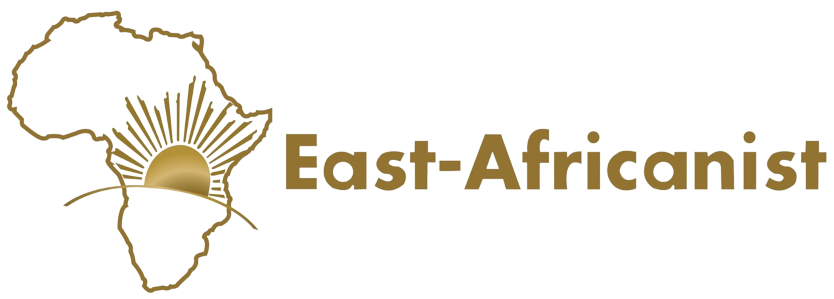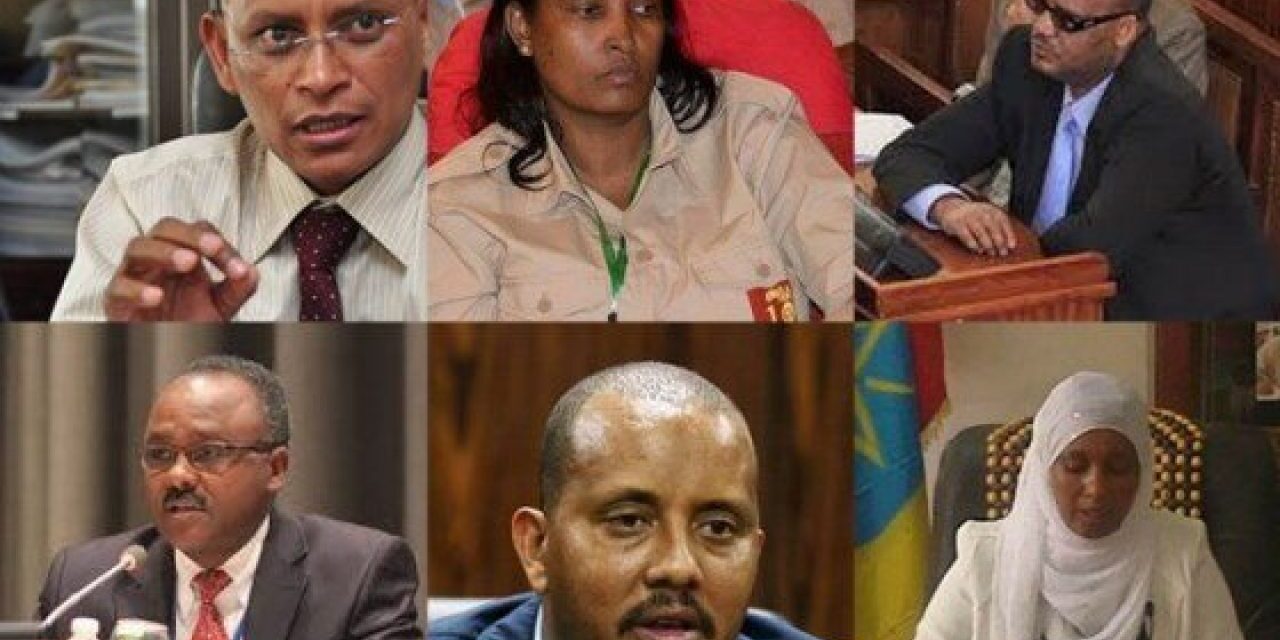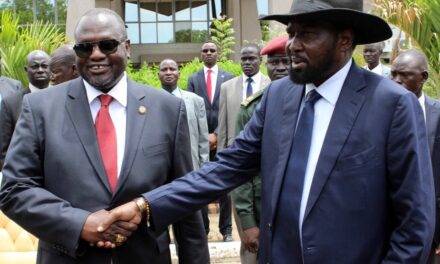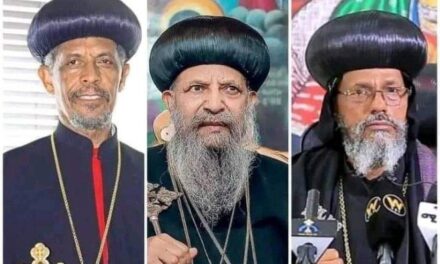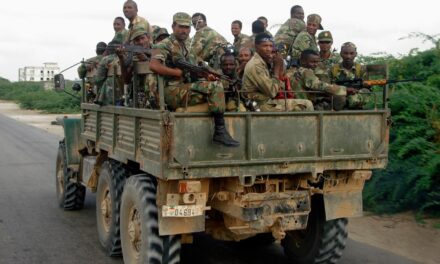By Derege Demissie, J.D.
Every nation that has gone through a transformative reform struggles to rid itself of the ills of the former regime through different models of accountability, retribution, restitution or reconciliation. After Prime Minister Abiy Ahmed came to power in Ethiopia in 2018, he introduced measures to implement his progressive reform agenda. He released political prisoners, invited exiled opposition parties, and ended a stalemate war with Eritrea. Yet, he left untouched those responsible for decades of human rights violations, suppression of individual rights and liberties, suppression of free speech, and most of all rampant and crippling corruption at the highest levels. No one was to pay a price, confess to crimes committed, seek forgiveness or reconciliation. He asked the public to forgive, where such was not even sought, and move on.
Countries that have a well-functioning and respected legal system use the legal process of accountability in criminal and civil courts. Others that find the past too painful and complex to address within the judicial setting, resort to a process of reconciliation where the perpetrator confesses to his or her crimes while their victims are encouraged to share the pain they endured. However, in Prime Minister Abiy’s Ethiopia there was neither judicial nor public accountability for crimes committed or for flagrant public corruption by officials of the Tigray Peoples Liberation Front (TPLF).
The public, relieved at the bloodless change, supported Abiy and agreed to move on. Even as some expressed frustration at the continued leadership role of many TPLF officials in the public service, the military and the private sector, no one called for an outright war against the TPLF.
For a brief period, Abiy’s attempt at reform without reckoning seemed to have a chance to succeed. But that hope proved short-lived. No sooner had TPLF’s own members voted to name Abiy prime minister than they began to undermine his reform efforts in several ways. The relationship between the state of Tigray and the Federal government soon began to take the form of two co-equal entities. The Tigray region was effectively operating outside the jurisdiction of the federal courts. When the former head of national security was charged with human rights violations, he simply absconded to Tigray, effectively out of the law’s reach.
Instead of confronting the TPLF head-on, Abiy moved swiftly and without much fanfare to disentangle the military and the internal security apparatus from the TPLF. He modernized the air force. He promoted professional military leaders to top positions. At the same time, instead of taking steps to join the reform, the TPLF began to retrench and consolidate its power in the Tigray region.
The fractured ruling coalition of parties that was created and dominated by TPLF finally disintegrated when Abiy implemented one of his transformative reform agendas by establishing a multi-ethnic party, Biltsigina (Prosperity) in late 2019. Its creation was antithetical to the central principle of the TPLF. The TPLF at its core is an ethnic nationalist party. It views Ethiopia as a conglomeration of many independent, self-interested ethnic groups with distinct geographic regions attached to them. According to that view, each citizen of Ethiopia is loyal to his ethnic group first and secondarily to the nation. Ethnic identity overshadowed citizenship.
These ideas morphed into a legal framework in the new constitution that introduced the concept of ethnic-based federalism. The constitution created 9 states along ethnic lines. The states, referred to as Killils, which literally means exclusionary zone, were named according to the dominant ethnic group that inhabits the land. Each Killil was provided with a constitution that is identical, verbatim, in every respect. The TPLF dominated the ruling coalition that assigned a party from within its coalition to administer each region. But the federalism promise of local rule never materialized.
Ethiopia’s federal system lacked many of the characters of a federation. The ethnic states never adopted their own constitution in a free constitutional drafting and ratification process. They never once conducted a free and fair election to elect local and state leaders, the central government often removed and appointed the governors at will. As the former US Ambassador Herman Cohen, a long-time ally of the TPLF and a controversial figure when it comes to Ethiopian politics, recently admitted, for 27 years Ethiopia’s federal system was a unitary system controlled by one party. “In 1991 a system of states was established based on ethnic groups. But this was a fake system because none of the states that had ethnic groups different from the Tigrayans had any voice what their government should be and what they should have. So it is strictly a one party state, which most African governments had abandoned long time ago.”
So when Abiy first announced his governing principle “Medemer,” which can mean addition, unity or togetherness, what the TPLF leaders and some supporters of the Oromo Liberation Front (OLF), heard was a call for an end to ethnic-federalism. They saw the creation of the multi-ethnic party as proof that Abiy intends to lead the country in the direction of unity, a word, to TPLF and some Oromo activists, domination by the Amhara, the second largest ethnic group that has dominated the political, cultural and literary life in the country over a hundred years, lasting until 1991. The shift created what many saw as an unholy alliance between extremist elements within the OLF and the TPLF. The OLF, a one-time separatist group that oscillates between advocating for a separate Oromo state and fighting for the rights of Oromo people, began to oppose Abiy openly and went as far as disputing his ethnic identity as an Oromo.
The simmering conflict boiled over when the national elections were postponed due to the Covid-19 pandemic. The TPLF protested and called the move unconstitutional. But instead of going to court and avail itself of the legal remedy available to it under the laws the TPLF itself had instituted while it was in power, it chose to unilaterally declare the federal government illegitimate and announced that Federal law will not have any force or effect Tigray region. The announcement was accompanied by a show of force where thousands of young soldiers of the Tigray special forces marched through the streets of Mekelle, the regional capital. Then TPLF leaders announced they had over 250,000-strong special forces and militia, armed and trained to “defend” the right of the Tigrayan people. Still, Abiy chose to wait and see. But he did not need to wait much longer.
On November 3, the Tigrayan special forces attacked a federal garrison in Mekele and took over the compound, seizing armaments belonging to the Northern Command. One of the TPLF leaders, who used to be a federal government official, explained the reasoning behind the attack as “an anticipatory self-defense.” He compared the attack with Israel’s preemptive strikes against Egypt during the 6 day war in 1967. That was not an apt comparison. A better example would be the attack on Fort Sumter by the confederate general P.G.T Beauregard in South Carolina, United States, in 1860, that prompted Abraham Lincoln to declare war against the confederacy.
The attack on the federal troops not only prompted the government’s all out response to bring the entire leadership of the TPLF to justice, it also ended the experiment to usher in reform without confrontation and reckoning. In the past two weeks, Abiy’s government has charged over a hundred high ranking former officials for various crimes committed over the past three decades. The TPLF, when it controlled the government, owned and operated a number of corporations in the private sector. Last week, the government froze the assets of over thirty major corporations with ties to the TPLF and its leaders. These corporations controlled the lion’s share of the private economy and, according to various sources, openly operated outside the business norm and the rules that govern their competitors.
The TPLF leadership has made a habit of missing opportunities and wasting chances. Its decision-making has been erratic, short-sighted and unimaginative. It consistently underestimated the depth of opposition it faced in the country. The TPLF also overestimated its strength among the populous in the Tigray region.
Now the TPLF is facing the entire federal army, well-trained and equipped and fighting fueled by the outrage over the surprise attack on fellow soldiers. The federal troops are fighting with popular support and a sense of moral authority. The rapid and successive loss it suffered is proof that TPLF never had a chance.
When the TPLF came to power in 1991, it had the perfect opportunity to build a democratic system that guarantees individual freedom and protects individual rights. It missed a chance to create a genuine federal system that allows the people to elect their local leaders and have a say in the administration of their local affairs. It missed the opportunity to institute essential safeguards against corruption and develop a legal system with an independent judiciary. Most of all, it failed to build a society where there are no clear winners and losers.
The challenge for Abiy now is to ensure that there are no losers and winners at the end of the conflict. That is to say, the Tigrayan people must not feel they “lost.” So far, the government has done a commendable job of separating the TPLF leaders from the people in Tigray. The main work in that regard, however, begins when the rebuilding effort starts. If the people in Tigray region are able to express themselves freely and openly as well as exercise their democratic rights, they will see themselves as winners. A greater emphasis on individual rights and liberties with strong legal protection will play a significant role the healing process.
